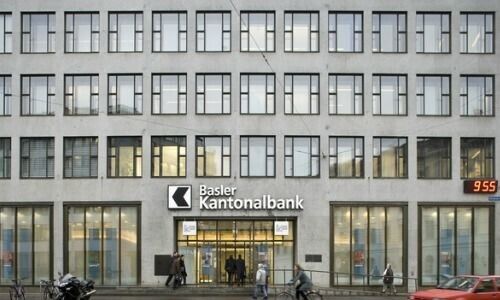The Basel Cantonal Bank’s latest strategic statements show little sign of the desire to innovate the bank has expressed in the past and it is rolling back in some areas.
The Basel Cantonal Bank (BKB) set itself some ambitious financial targets for 2025 in its «Strategy 2022+» published Wednesday such as raising cost and capital efficiency.
At the same time, BKB is seeking to be a niche player in certain sectors via its subsidiary Cler, which operates across Switzerland.
In this context, Bank Cler announced it was launching trading and custody services for digital assets over a year ago.
Pioneering Role Abandoned
However, this project has been stopped as part of the new medium-term goals. The team will be dissolved, financial platform «Moneytoday» (in German) reported.
In July, finews.com reported that the head of the team, Alain Kunz, had left Cler before the project took shape.
A BKB spokesman confirmed to finews.com that Cler would not go ahead with crypto-asset services. The move is part the BKB Group, which also includes smartphone bank Zak, repositioning itself.
The group no longer sees itself as leading the charge, but more as a «smart follower». In other words: instead of promoting and launching innovations itself, the BKB wants to sit back and watch, and, where necessary, copy and adapt the competition’s successful innovations.
Pressure on Margins
Instead of increasing earnings and diversifying further through innovation and entering into new business areas, the bank is concentrating on getting more out of its traditional business of lending and investment.
In other words the BKB is no longer willing to risk further potential expensive failures such crypto services. All banks are suffering from pressure on margins, both in the interest and investment business. This has meant top managers becoming more conservative and cost-conscious.
Innovation Laboratory Axed
As a result, the bank is now closing its Keen innovation laboratory too. BKB also said that it wanted to bring the innovation processes closer to the customer business of both banks.
Cost and the desired reduction in the cost-income ratio to around 55 percent may have played a role in the decision to close Keen, which had cost the BKB around 3 million francs ($3.27 million) a year in the past few years.
Set up at the end of 2018 as an independent start-up for digital financial innovations, Keen was supposed to help «take BKB into the future in a technology and growth-oriented manner».

































